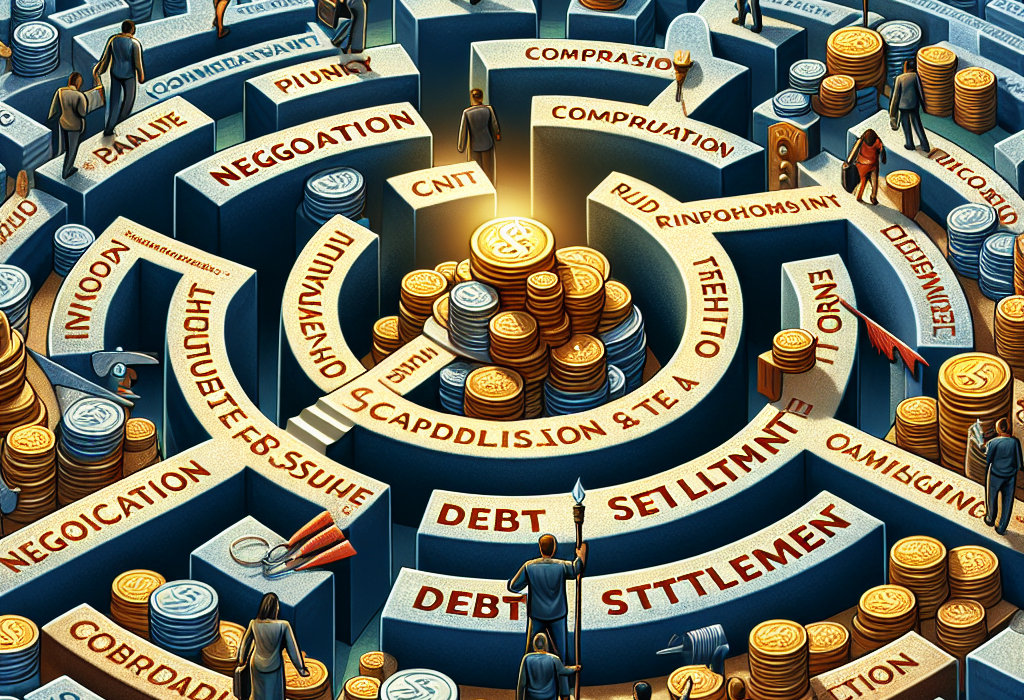Debt settlement may seem like a daunting and enigmatic process, but it is important to be well-versed with its intricacies to stay financially secure. To simplify, debt settlement is a negotiation process where a debtor successfully reduces their balance owed or mutually agrees on an alternative payment plan with the credit issuer. Let’s explore this complex process and make it comprehensible for everyone.
What is Debt Settlement?
Debt settlement is an approach that involves negotiating with creditors to accept a lower amount than what you originally owed on your debt. Often, it’s employed by individuals who cannot handle their hefty or multiple debts and thus, avoid bankruptcy as a scenario.
The Process of Debt Settlement
The process starts when a debtor decides to take control of their financial situation. They could either opt to approach the debt settlement process by themselves, or hire a professional debt settlement company.
When doing it alone, the debtor must curate accurate financial statements, figure out an affordable and reasonable offer, and open negotiations with the debtor. This is a demanding process that requires experience, assertiveness, and keen persuasion skills.
Meanwhile, professional debt settlement firms take the whole burden from your hands. Their experienced team prepares all the documents on your behalf, negotiates with creditors effectively, and even handles pesky creditor calls. However, they charge a substantial fee for their services, which is usually a percentage of the debt negotiated.
Advantage of Debt Settlement
Debt settlement provides an opportunity for debtors to avoid bankruptcy, which would otherwise remain on credit reports for up to 10 years. The process can significantly reduce the total debt, making it easier and faster to become debt-free. It also helps in reducing the harassment quotient of having to deal with creditors or collection agencies. However, these benefits come with certain risks and potential downsides.
Risks and Downsides of Debt Settlement
The first considerable downside is the impact on your credit score. Debt settlement, while eliminating some debt, also marks a negative impression on your credit report, slowing down future loan approvals or high-interest rates on approved loans.
The second downside is the potential of facing lawsuits from creditors or collection agencies. This happens when negotiations fail or if the debt settlement company uses aggressive tactics.
Thirdly, settled debt can be considered as an income for tax purposes. This means, if a significant portion of your debt is settled or excused, you might be looking at increased income tax payable at the end of the year.
Alternatives to Debt Settlement
There are other alternatives available such as credit counselling, debt consolidation, and bankruptcy. Credit counseling provides you with a customized budget and repayment plan but doesn’t reduce your overall debt. Debt consolidation is where you put together all of your debt and then take out one larger loan to pay them off. Filing for bankruptcy should be considered the last resort due to its long-term effect on your credit score.
Conclusion
Navigating through debt settlement is indeed complex. While it offers a saner pathway to debt freedom, it is also fraught with unattractive consequences, should things slide south. Therefore, it is highly recommended to seek advice and understand all pros and cons before deciding on debt settlement. Quite often, a careful review of one’s personal financial management could be the first and the most effective step towards debt alleviation.
FAQs
1. Does debt settlement work?
Yes, debt settlement works and can help drastically reduce the amount you owe. However, it depends on your personal financial situation and the willingness of your creditors.
2. Is debt settlement bad for your credit?
Yes, debt settlement can significantly impact your credit score negatively.
3. How long does debt settlement stay on your credit report?
Debt settlement can stay on your credit report for up to 7 years.
4. Can creditors refuse a debt settlement?
Yes, creditors have the right to refuse a debt settlement offer.
5. Is it better to pay off a debt or settle?
It entirely depends on your financial situation. If you can afford to pay off your debts, it’s generally better to do so. However, if you are unable to make payments or are overwhelmed by your debt, settlement might be a more effective solution.













